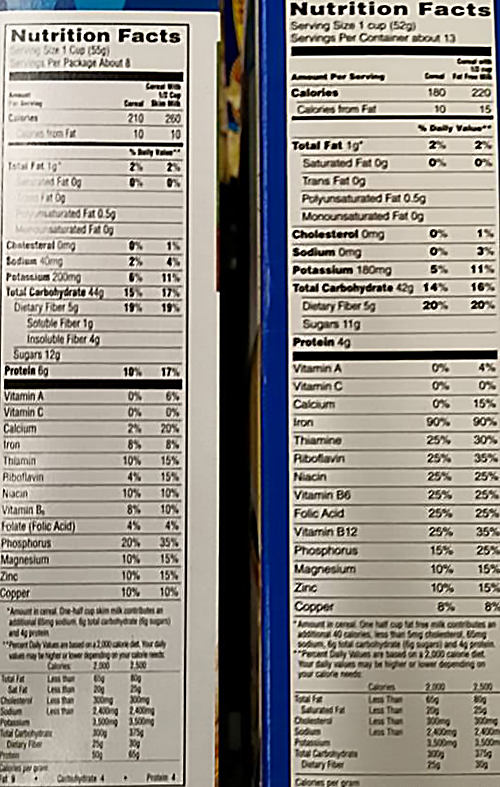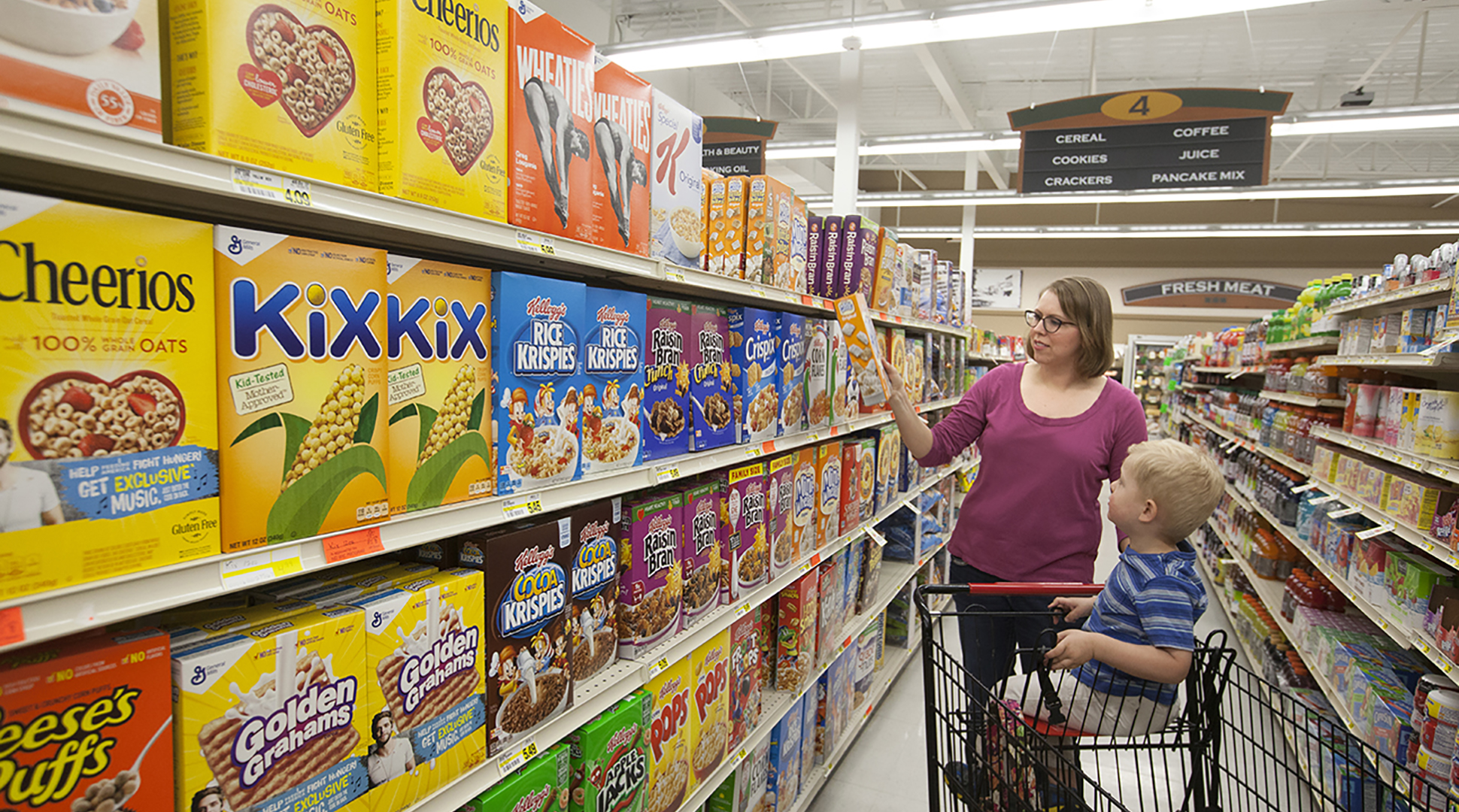by Carie Moore
I remember the exact day my label mistrust began. My mom and I were talking about health programs, mainly the one she uses and the one I have been using.
I pulled a box of generic cereal off the shelf and the name brand health program cereal. The name brand health program cereal was the same serving size, a smaller box, a larger price, more calories, carbohydrates, and sugars. This is a weight loss product? Then I get to the vitamins and minerals and the health program cereal had nothing over 20%. I was shocked, and it forever changed my grocery shopping for my family.

On the left, the "name brand healthful" cereal.
There are 2 definitions for the word “label” - and they couldn’t be more opposite:
- Material attached to an object, giving information about it.
- A classifying phrase or name applied to a person or thing, especially one that is inaccurate or restrictive. Now, apply that to food labels.
Are they giving information, or classifying and inaccurate? No wonder we as consumers are confused! It can be either, and it’s up to YOU to tell the difference.
A product can be labelled healthy, as in “classifying phrase” because if you don’t compare it to another similar product, technically it’s giving information about it. Until you start comparing, generally a stand-alone label, is (for the most part) correct.
It’s in the comparison where the label breaks down.
When meat is labelled antibiotic free, ask yourself, “Compared to the meat next to it that doesn’t say it?” Whether the label is there or not, it’s all antibiotic free. It’s the law.
When something is labelled organic, ask yourself, “Compared to one that doesn’t have the label?” Unless it says certified 100% USDA organic, it’s not truly organic. The label that goes with organic is a classification. Organic doesn’t mean it hasn’t had chemicals applied.
Are you paying more for a “label” that COMPARED to something else, is the exact same thinga? Grass fed beef compared to what? All cattle are ruminants therefore needing grass/hay/alfalfa. If you know the taste difference between grass finished or grain finished, that’s one thing. But if you can’t taste the difference, don’t pay the extra cost based on a label.
GMO-free strawberries? There aren’t GMO strawberries!
It doesn’t make me a better mom to feed my family non-GMO, organic, or antibiotic free. A good mom reads the actual nutrition FACTS. (I love that they are called that.)

You want to know what’s in the product, look at the nutrition facts, not the label. Everyone focuses on the labels these days. No matter what the internet tells you, for most food, labels are not facts.
Educate yourself on basic nutrition and if you’re still not sure, grab another product, compare it, and that will tell you if it holds true to its label. There’s a reason the label is on the front and the facts are on the back. You’re in a hurry, you look at the labels, and grab. First thing I do when I see a new cereal or yogurt is look at the nutrition facts. I know what my usual products contain so how it compares sticks out right away.
My kids know nothing should be judged on a “label.” That is just as true for our food as the people around us. You make choices and decisions based on facts.
Companies have people thinking they NEED the label, despite what the information on the side of the box says. It makes me wonder how much healthier people would be switching out some products. Small changes make a big difference remember!
Fact: a thing that is indisputably the case.
And that’s a fact.
